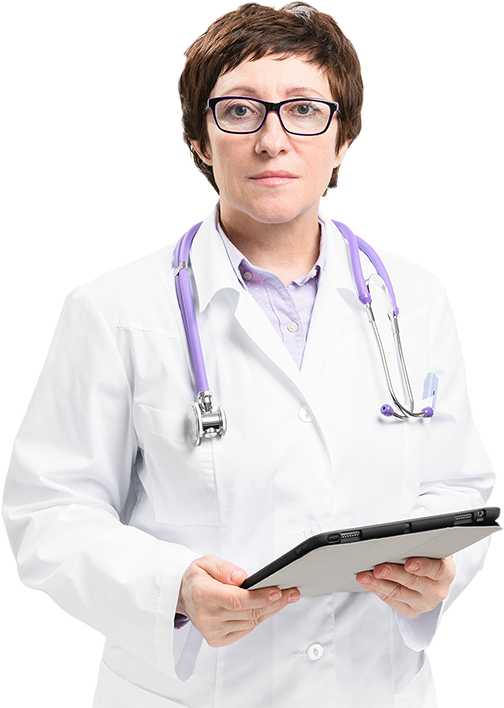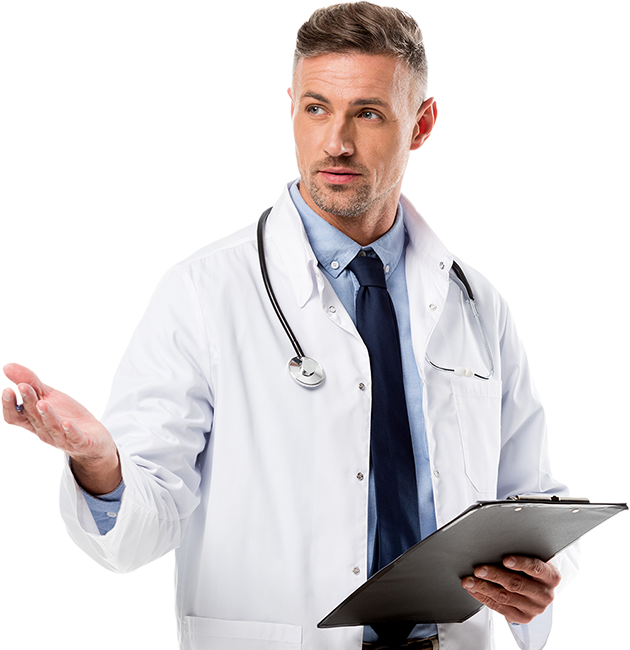About Symptoms of Chlamydia
Chlamydia can be highly hazardous if left untreated, but if you act quickly, it can be readily treated and you can return to full health.
Learn about the signs and symptoms of Chlamydia, as well as what steps to take for a successful recovery.
About Chlamydia Symptoms
What is Chlamydia?
Chlamydia is a sexually transmitted disease (STD) that can produce serious symptoms in both men and women. This common STD is particularly dangerous for women because it can seriously impair their reproductive systems. PID, or Pelvic Inflammatory Disease, is a well-known side effect of untreated Chlamydia that can result in ectopic pregnancy or infertility.
About Chlamydia Symptoms
Taking a Closer Look at Chlamydia Symptoms
Chlamydia symptoms can affect both men and women. The bulk of the signs and symptoms are unpleasant. People frequently wait until their symptoms become unbearable, if not severe, before seeking medical help. The symptoms, however, are not always evident. Symptoms that are asymptomatic do not cause any discomfort. Despite the lack of symptoms, the virus causes damage to the reproductive system. Chlamydia can be passed on to sexual partners even if the infected person shows no signs or symptoms. Regular testing, especially when starting a new sexual relationship, is the most effective way to protect yourself and your partner against Chlamydia. Men and women experience symptoms in various ways. For both men and women, we’ve provided a list of common Chlamydia symptoms.
About Chlamydia Symptoms
Symptoms of Chlamydia in Women
Among women, the following are the most prevalent symptoms:
- No Symptoms
Other symptoms of Chlamydia in women include:
- Painful urination
- Rectal discharge, discomfort, or blood
- Vaginal discharge is abnormal.
- Inflammation of the eye
- Intercourse discomfort
- Bleeding between menstrual cycles
- Lower back pain
- Pelvic and lower stomach pain
- Fever
- Nausea
- Sore throat
.You should be concerned if you’ve experienced any of the aforementioned Chlamydia symptoms or if they’re getting worse. The greatest thing you can do is be calm and get medical treatment right away. Chlamydia is one of the most easily treated STDs. Chlamydia, on the other hand, if left untreated, can have a number of serious repercussions.
About Chlamydia Symptoms
Symptoms of Chlamydia in Men
The following are the most common symptoms among men:
- No Symptoms
Other symptoms of Chlamydia in men include
- Painful urination
- Abnormal discharge (thick, milky, watery, or yellow-white) from the penis
- Bleeding, pain, or discharge from the rectum
- Sore throat
- Inflammation of the eye
- Swelling and pain of the testicles
- Itchy or burning sensation around the tip of the penis
You should be concerned if you detect any of the aforementioned Chlamydia symptoms developing. The best course of action is to be calm and get medical treatment as soon as possible. Chlamydia is one of the most straightforward STDs to treat. Chlamydia, on the other hand, if left untreated, can cause a plethora of serious issues.
About Chlamydia Symptoms
Chlamydia prevention
Safe intercourse is the most effective way to avoid Chlamydia. Preventative methods include condoms and dental dams, although they are not the only ones. Chlamydia trachomatis is the bacteria that causes Chlamydia and is communicated by sexual fluids, making it possible to spread Chlamydia through any type of sexual activity involving two or more people (vaginal, anal, and oral). Sexual fluids include sperm, pre-ejaculate, and vaginal secretions, among others. To transfer the disease, male partners do not need to ejaculate, which is why prophylaxis is so vital.
About Chlamydia Symptoms
Contracting Chlamydia on Multiple Occasions
People who have had Chlamydia are not immune to contracting it again. Even people who have already been infected with Chlamydia can re-infect themselves. If your partner has Chlamydia, avoid sexual contact with them until they’ve completed their treatment. This can take anything from 7 to 14 days.
About Chlamydia Symptoms
Getting Over Testing's Embarrassment
It can be tough to overcome the embarrassment of being tested for Chlamydia, but keep in mind that the majority of Chlamydia carriers are asymptomatic and unaware of their illness. In 2014, the Centers for Disease Control and Prevention (CDC) recorded approximately 1.5 million cases of Chlamydia in the United States alone. Rapid STD Testing takes great care to protect our patients’ privacy and minimize the risk of embarrassment. We realize how uncomfortable discussing STDs may be, and we equally recognize the need of being tested. Chlamydia testing can protect you and your partner(s) while also enabling you to receive the treatment you require.
About Chlamydia Symptoms
Getting Tested for Chlamydia
Chlamydia testing is simple, requiring only a urine sample to determine the presence of microorganisms. If your doctor recommends Gonorrhea testing alongside Chlamydia testing, don’t be surprised. Because it is uncommon for persons with Chlamydia symptoms to also test positive for Gonorrhea, doctors routinely recommend this. Completing all of these tests at once saves time and worry, and allows therapy to begin immediately.
About Chlamydia Symptoms
What is the Treatment for Chlamydia?
Chlamydia is one of the easiest STDs to treat if you start therapy before severe problems emerge. An oral antibiotic such as azithromycin or doxycycline is the most typical treatment given by doctors. These medicines can help relieve symptoms in as short as 2 to 3 days. Your doctor may give antibiotics as a prophylactic measure before your findings are returned. This is because, even if the results are negative, you could be suffering from another condition, such as a urinary tract infection (UTI), which requires treatment. Regardless of your results, it is vital that you finish the antibiotic treatment as prescribed.
About Chlamydia Symptoms
A Few Points to Consider When It Comes to Treatment:
- Even if you start to feel better, you should always follow your doctor’s advice and finish your prescription. Failure to complete an antibiotic course might result in the development of antibiotic-resistant bacteria as well as the occurrence of recurrence. Tell your doctor about any concerns you have regarding your drug before starting treatment.
- Notify anybody who has had sexual contact with you about your symptoms. It’s possible that they’re infected but don’t know it, or that they don’t have any symptoms at all. We recommended that everyone engaged be tested to guarantee protection and the earliest and safest treatment.
- Sexual activity should be avoided until the bacteria has fully left the person’s system. You should avoid sexual contact for at least 7 days after treatment for your Chlamydia symptoms, whether you were given a single dose or a daily dose for 7 to 10 days. This is the most effective method for keeping your spouse safe and preventing re-infection.
About Chlamydia Symptoms
Pregnancy and Chlamydia
You should get tested as soon as possible if you are pregnant or suspect you are pregnant. Chlamydia can cause eye infections and pneumonia in your infant. It also increases the risk of a premature birth. While testing while pregnant is safe, it should be done as soon as possible to avoid any unfavorable outcomes and to begin any necessary treatment.






Need To Know How To Get Tested For STDs in our Labs?
No Paper Work To Fill. Quick & Confidential Judgment Free Confidential STD Testing


Choose Your Test
At our test center, getting tested for STDs is a simple and quick process. Ordering tests is done over the phone or online. Monday through Friday, with some locations offering Saturday testing.


Visit A Lab Center
There will be no need to wait, fill out papers, or schedule an appointment; you will be in and out in minutes.


Get Your Results
Your test results will be available in your online account within 1-2 days.
Get Tested Now!
No Appointments Required. 100% Confidential STD Testing.
Our private STD testing laboratories give thorough and accurate findings. In 24 to 48 hours, the order, test, and results are available online. Right now, take a test! The Food and Drug Administration has given their approval. Completely confidential. Alternative treatments are available.
Complete anonymity is guaranteed. FDA-Approved/Cleared. Your findings will be available in 24-48 hours.
- Chlamydia & Gonorrhea
- Early Detection HIV
- Hepatitis A
- Hepatitis B
- Hepatitis C
- Early Detection Syphilis
- HIV 1 & 2 (Fourth Generation)
- Herpes type-1
- Herpes type-2










STD Testing in New York City
Completely confidential. Fast, local, and affordable services to protect you and your partner. Completely confidential. FDA-Approved/Cleared. Within 24-48 hours, you’ll have results.
STD testing takes into account your age, risk factors, indications and symptoms, and medical history. You should obtain full testing if you’re at risk for one STD because you might be at risk for others as well.
All of our STD testing is done with urine and/or blood tests to ensure accuracy. Swabs and saliva tests are not used.
If a woman is at risk for STDs, her menstrual period should not prevent her from getting tested.
Within 48-72 hours, the majority of tests yield an electronic result. Trichomoniasis and HIV RNA tests may take one extra day.
To ensure a large enough sample size for a pee test, don’t urinate for at least an hour before the test. You must also fast for 12 hours before taking the wellness panel. There’s nothing else you need to do to prepare for your STD test.
It’s difficult to tell which STDs you’ve been exposed to; if you’re at risk for one, you’re at risk for them all. The best way to ensure that you are fully informed and aware of any potential STDs is to take our 10-Test Panel.
There are tests for Chlamydia, Gonorrhea, Trichomoniasis, Hepatitis A, B, C, Genital herpes, Oral herpes, HIV 1 & 2, and Syphilis. Individual and group testing are available. Get more information on STD Testing.
We recommend getting tested for STDs at least twice a year if you are sexually active in any way. If you are sexually active, have multiple partners, or have previously tested positive for one or more STDs, more frequent testing is recommended.
The STD minimum age varies by state. Click the link to see what might apply to your state.
From the time you arrive, the visit takes roughly five minutes or less. The appointment consists of simple urine and/or blood collection, followed by your exit.
Definitely not. Our partner labs also do a range of other diagnostic tests that need urine and/or blood samples, therefore the STD Test is unlikely to be noticed.
It is not necessary to make an appointment. After you’ve placed your order, you can pick up your samples at the lab at any time during business hours. If you’re pressed for time, call the lab to make an appointment.
As soon as you receive your Order Form, you can begin taking the test (or confidential test code). The order form will be emailed to you or available through your online account.
It’s a blood test that can diagnose syphilis within two weeks of infection (compared to 4 weeks to 3 months with a standard RPR test)
It’s a blood test that can detect HIV 9-11 days after exposure (compared to 2-6 weeks with an HIV antigen/antibody test).
HIV: 2-6 weeks, Syphilis: 1-3 months, Herpes: 6-26 days, Chlamydia: 1-3 weeks, Gonorrhea: 2-3 days, Hepatitis B: 1-5 months, Hepatitis C: 2-6 months, Trichomonas: 5-28 days
If you are confirmed positive, for a cost of $95, we will offer you with a doctor consultation and written prescription. For an extra $95, you can get a documented prescription for your partner. We can even call your pharmacy on your behalf to get your prescriptions filled.
Yes, having an STD treated does not prevent you from catching it again.
Our live chat representatives are unable to look up your results owing to privacy considerations. However, you can inquire about the status of your results by contacting our Medical Advisors.
Know Your Status. Get Tested.



































